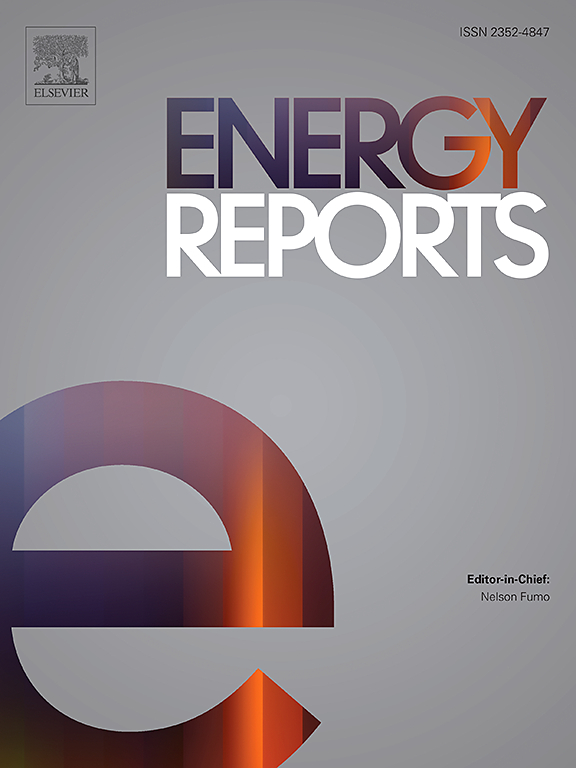Methane and carbon dioxide post-combustion capturing: A step towards low carbon aviation fuel
IF 4.7
3区 工程技术
Q2 ENERGY & FUELS
引用次数: 0
Abstract
This study addresses the critical challenge of reducing greenhouse gas emissions in the aviation sector by focusing on post-combustion methane (CH₄) and carbon dioxide (CO₂) capture as a step toward the development of Low Carbon Aviation Fuels (LCAF). A novel combustion process was developed and evaluated, utilizing an innovative approach that integrates methane (CH₄) recycling, carbon dioxide (CO₂) capture, and electrolysis-generated hydrogen (H₂) and oxygen (O₂). The methodology involved benchmarking the performance of the proposed process against conventional combustion processes. Experiments were conducted using two types of fuels—Type A and Type B—selected for their distinct carbon-to-hydrogen ratios to represent a spectrum of aviation fuel properties. Key performance metrics, including heat release, emissions, and methane (CH₄) and oxygen (O₂) production, were analyzed across multiple integration scenarios. The findings demonstrate that the proposed system significantly reduces nitrogen oxide (NOx) emissions, enhances methane (CH₄) recycling efficiency, and optimizes resource utilization compared to conventional methods. The integration of carbon dioxide (CO₂) methanation and oxygen (O₂) recycling not only minimizes environmental impact but also aligns with global decarbonization goals for aviation. These results highlight the potential of the proposed process to contribute to the sustainable transition of the aviation industry, offering an effective pathway to achieve energy security and climate targets. The proposed system achieves a methane (CH4) production of 1.71 kmol/hr, a 15 % reduction in NOx emissions, and a 4.4 % lower energy intensity compared to conventional processes.
燃烧后的甲烷和二氧化碳捕获:迈向低碳航空燃料的一步
本研究通过关注燃烧后甲烷(CH₄)和二氧化碳(CO₂)的捕集,作为开发低碳航空燃料(LCAF)的一步,解决了减少航空部门温室气体排放的关键挑战。开发并评估了一种新的燃烧过程,利用一种创新的方法,将甲烷(CH₄)回收、二氧化碳(CO₂)捕获和电解产生的氢(H₂)和氧(O₂)结合起来。该方法涉及对拟议过程的性能对传统燃烧过程进行基准测试。实验使用了两种类型的燃料——A型和b型——选择它们不同的碳氢比来代表航空燃料特性的光谱。关键性能指标,包括热量释放、排放、甲烷(CH₄)和氧(O₂)产量,在多个集成方案中进行了分析。研究结果表明,与传统方法相比,该系统显著降低了氮氧化物(NOx)排放,提高了甲烷(CH₄)的回收效率,并优化了资源利用。二氧化碳(CO 2)甲烷化和氧气(O 2)回收的整合不仅可以最大限度地减少对环境的影响,而且还符合全球航空脱碳目标。这些结果突出了拟议过程在促进航空业可持续转型方面的潜力,为实现能源安全和气候目标提供了有效途径。与传统工艺相比,该系统的甲烷(CH4)产量为1.71 kmol/hr,氮氧化物排放量减少15% %,能源强度降低4.4% %。
本文章由计算机程序翻译,如有差异,请以英文原文为准。
求助全文
约1分钟内获得全文
求助全文
来源期刊

Energy Reports
Energy-General Energy
CiteScore
8.20
自引率
13.50%
发文量
2608
审稿时长
38 days
期刊介绍:
Energy Reports is a new online multidisciplinary open access journal which focuses on publishing new research in the area of Energy with a rapid review and publication time. Energy Reports will be open to direct submissions and also to submissions from other Elsevier Energy journals, whose Editors have determined that Energy Reports would be a better fit.
 求助内容:
求助内容: 应助结果提醒方式:
应助结果提醒方式:


